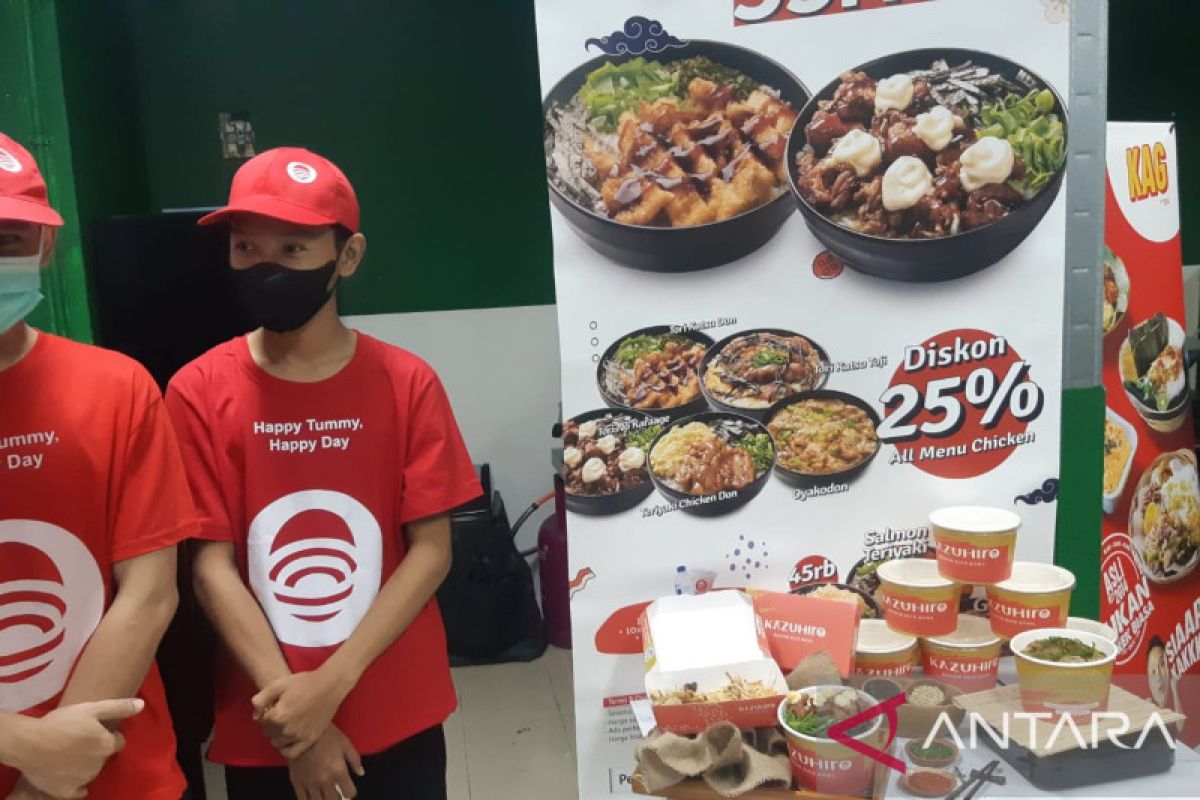The commitment to present healthy canteens in Jakarta's schools should also be complemented with providing an understanding of healthy foods and beverages to vendors.
This is in accordance with Jakarta Acting Governor Heru Budi Hartono's expectation wherein healthy school canteen managers should ensure that foods and beverages served to students have adequate nutrition and are safe to consume.
The case of poisoning in children after consuming the snack "Ciki Ngebul" in several regions and even in Jakarta serves as a lesson on the importance of providing education to food micro, small, and medium enterprises (MSMEs).
These food MSMEs often sell their goods around schools, with some of them even recruited to sell in canteens, with the expectation that children would not wander around during recess.
The issue lies in whether these MSMEs understand about quality healthy food. The "Ciki Ngebul" case shows that processing instant foods and beverages cannot be done haphazardly.
It is akin to being a seafood chef, wherein not just everyone can process them, and even renowned restaurants must hold a special certificate.
Incorrect handling will not only create bad-tasting foods but also foods that pose danger to the health of consumers.
This drove Hartono's request to have a special certificate for canteen managers, so that students, who consume the foods, will not only be protected but also receive balanced nutrition.
Diversity
Along with the passage of time, foods that children are interested in also became more diverse. Innovation and modification allow the creation of more delicious foods or beverages.
As an example, cilok, a tapioca flour-based food, was initially served with peanut sauce, but in its development, it is also now served with broth with various additives.
This snack is popular among students, and it also easily found at all schools. Beyond cilok, there are several other foods and beverages that are popular among children.
Unfortunately, not every food enters the canteen. Several students chose to buy their snacks outside rather than at the school canteen.
This poses a challenge for the Jakarta Education Office and Health Office to ensure that the foods that students consume can enter the canteen after their safety and nutritional content were examined.
The other issue is educating merchants, which is difficult, given that not all food MSMEs or merchants understand food nutrition and safety.
For instance, the use of MSG, which is a flavor enhancer that almost all snacks have as a complement to other ingredients.
Practical consideration and MSG's ability to improve a food's taste drove several food merchants to use the ingredient known as monosodium glutamate and glutamic acid.
Given the prevalence of popular foods containing MSG, a term called "MSG generation" was created among students.
According to Communication Head at the Indonesian Monosodium Glutamate and Glutamic Acid Factory Association (P2MI) Satria Gentur Pinandita, there is no harm in serving food using MSG.
He deemed that as long as the dosage is correct and the MSG is stored in an airtight package, there should not be any health problems.
The issue arose as to whether this knowledge reached food MSMEs since survey results found that several of them store MSG in a folded package tied with a rubber band.
According to Pinandita, glutamate-based additives easily absorb liquid while the liquid existing around these merchants' goods can contain substances that can harm consumers' health. Thus, methods to store additives became an important factor.
However, based on a field survey, there are still several merchants, who neglect this important factor. Most of them said that they did not know that MSG needs to be stored in an airtight package.
Additives
When it comes to food additives, nutritionist at the Ministry of Health Mursalim said that they should not pose a problem as long as natural ingredients are used.
One other factor that should be ensured is that the food should have adequate nutrition to provide benefits for the body.
In their day-to-day lives, humans should have adequate food intake, including meeting balanced nutrition, Nursalim noted.
Continuously consuming foods that only have certain nutritional contents can bring negative impacts to our body. Moreover, ensuring adequate food fiber while conducting activities is also important.
This should also be considered by school canteens, so that their food can meet all nutritional requirements.
In relation to the poisoning case, Nursalim said that there should be an effort to ensure whether the food processing itself is safe in addition to the serving methodology.
Several poisoning cases occurred as a result of serving expired food.
As a food entrepreneur, Florentina Panti Rahayu noted that anyone delving into the culinary world should understand food safety, whether they work at a stall or a high-class hotel.
Florentina, who has been in the culinary industry for almost 15 years, said that food safety is a must for culinary entrepreneurs since being a businessperson means conducting activities with ethics and responsibility.
This advice rings true, given that committing violation and disappointing customers will result in them losing trust in the food products created by these culinary entrepreneurs.
This is what has caused the culinary industry to rise and fall. Beyond inconsistency in serving, several aspects related to food safety are ignored.
Hence, to this end, schools and canteen managers should ensure that the foods and beverages that they sell meet safety and nutritional aspects.
In fact, the Jakarta acting governor often urges schools to conduct monitoring and offer guidance to merchants around schools, so that students can be safe and receive balanced nutrition beneficial for growth.
Related news: School canteens banned from opening to tackle acute hepatitis
Related news: Drug dealer in S Kalimantan uses school canteen to sell drugs: Police
Editor: Rahmad Nasution
Copyright © ANTARA 2023












